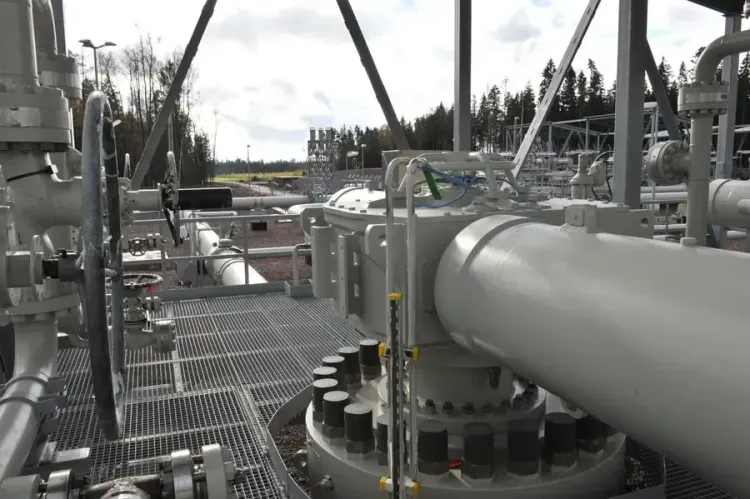Gazprom Halts Gas Transit Through Ukraine as Contracts Expire

Moscow, Jan 1 (NationPress) The Russian energy powerhouse Gazprom announced on Wednesday that it has ceased gas transit through Ukraine due to the expiration of essential agreements and the absence of renewal by the Ukrainian side.
The agreements, which were established on December 30, 2019, comprised a contract between Gazprom and Ukraine's national oil and gas firm Naftogaz for the transport of Russian gas via Ukrainian territory, as well as a cooperation agreement between the operators of the gas transmission systems of both countries. These agreements officially expired at 8 am Moscow time (0500 GMT) on Wednesday, according to Gazprom's statement on Telegram.
Gazprom stated that Ukraine had consistently and categorically declined to extend these agreements, which left the Russian company without the necessary technical and legal framework to maintain gas transit through Ukraine.
As a result, the flow of Russian gas through Ukrainian territory came to a halt at 8 am Moscow time Wednesday, as reported by Xinhua news agency.
Last month, the Russian government cautioned that the transit of Russian gas to European nations is currently “very challenging” and requires careful consideration.
“You have heard the statement from the Ukrainian side, and you are aware of the stance of European countries that continue to purchase Russian gas, deeming it essential for the proper functioning of their economies,”
Kremlin spokesperson Dmitry Peskov remarked on December 23 following a meeting between Slovak Prime Minister Robert Fico and Russian President Vladimir Putin in Moscow, where the parties deliberated on the transit of Russian gas amidst Ukraine's refusal to renew the transit agreement.
Ukrainian President Volodymyr Zelensky stated at a European Union Summit that he would not extend Ukraine's five-year gas transportation agreement with Russia, which is set to expire at the end of 2024.
This situation has raised alarms in Slovakia, which has a long-term contract with the Russian energy giant Gazprom. Although Putin affirmed Russia's willingness to continue supplying gas to the West and Slovakia, Fico mentioned that this was “practically impossible” once the gas transit agreement concludes at the year’s end.
The resumption of gas transit would only be feasible at the request of the European Commission and if Ukraine were to transport non-Russian gas, as reported by Interfax-Ukraine in December, citing Ukraine's Prime Minister Denys Shmyhal.










